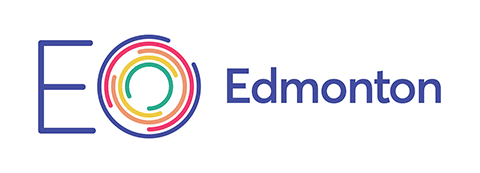Securing a job interview is a significant step towards landing your dream job, but it’s not just about answering questions – it’s also about asking them. Your inquiries not only demonstrate your genuine interest in the position but also play a crucial role in helping you assess whether the company and role align with your career goals. In this blog, we’ll explore why it’s essential to ask questions in an interview and provide you with 17 insightful queries to make a lasting impression and quickly evaluate if the job is the right fit for you.
Looking for your dream job? Contact Recruitment Partners today!
17 Questions to Ask in an Interview as the Candidate
- What does a typical day look like in this role?
- Can you describe the team dynamic?
- What opportunities for professional development exist within the company?
- How would you describe the company culture?
- What are the short and long term goals for the team?
- How does the company support work-life balance?
- What challenges and opportunities are the team currently facing?
- How does the performance review process work?
- What technologies or tools does the team use?
- How would you describe the leadership style in this company?
- What opportunities exist for collaboration across departments?
- How has the team evolved since you’ve joined?
- Can you share success stories of team members who have thrived in this role?
- What is the company’s approach to diversity, equity, and inclusion?
- How does the company handle change and adapt to market trends?
- What are the next steps in the interview process?
- Is there anything else I can provide to support the decision making process?
What Does a Typical Day Look Like in This Role?
Understanding the day-to-day responsibilities will give you a better sense of the job’s demands and whether they align with your strengths and preferences.
Can You Describe the Team Dynamic?
Knowing how the team collaborates and communicates can help you gauge whether you’ll thrive in the company culture.
What Opportunities for Professional Development Exist Within the Company?
Demonstrating a commitment to growth is attractive to employers, and understanding their commitment to your development is equally important.
How Would You Describe the Company Culture?
Ensure the company culture aligns with your values and work style by asking about it directly.
What Are the Short and Long Term Goals for the Team?
Knowing the team’s trajectory can provide insights into the company’s stability and your potential for growth.
How Does the Company Support Work-Life Balance?
Ensure that your potential employer values a healthy work-life balance, and ask about any flexibility or support programs they offer.
What Challenges and Opportunities are the Team Currently Facing?
Understanding the current landscape of the team will give you a sense of the immediate priorities and give you insight into how aware of the individual team challenges management is – offering you a way to assess if the company is right for you.
How Does the Performance Review Process Work?
It’s important to learn about the evaluation process to understand how your contributions will be recognized and rewarded.
What Technologies or Tools Does the Team Use?
Familiarizing yourself with the tools and technologies used can help you assess if you have the required skills as well as determine if you’re willing to learn the new technologies.
How Would You Describe the Leadership Style in this Company?
Understanding the leadership style will provide insights into the working dynamics and whether it resonates with your preferences.
What Opportunities Exist for Collaboration Across Departments?
Cross-functional collaboration can be vital for a well-rounded work experience. If you’re interested in a collaborative environment, be sure to inquire about opportunities to work with other departments.
How Has the Team Evolved Since You Joined?
Learning about the team’s evolution can provide insights into the company’s commitment to growth and improvement.
Can You Share Success Stories of Team Members Who Have Thrived in This Role?
Success stories can give you a sense of the career trajectory within the company and the qualities they value in employees – and a lack of success stories would give you something to evaluate as well.
What Is the Company’s Approach to Diversity, Equity, and Inclusion?
Assess the company’s commitment to diversity and inclusion to ensure it aligns with your values.
How Does the Company Handle Change and Adapt to Market Trends?
Adaptable companies are often more resilient. Learn about their approach to change and how they stay ahead in the market.
What Are the Next Steps in the Interview Process?
Show your eagerness and preparedness for the next steps in the hiring process.
Is There Anything Else I Can Provide to Support the Decision-Making Process?
Conclude the interview by expressing your interest and offering any additional information that might help them make a decision.
While you definitely don’t need to ask every one of these questions, this list gives you a great guide to questions you can ask that will quickly assess if a company and job is right for you. When interviewing for a new role, be sure to ask questions that are important to you and how you want to spend 2080 hours a year. Questions 16 and 17, though, are incredibly important in setting yourself up for success in the next steps of the job hunt!
Why it’s Essential to Ask Questions in an Interview as a Candidate
An interview is a two-way street. While the employer evaluates your suitability for the role, you should also assess if the company aligns with your career aspirations and work culture preferences. Asking questions demonstrates your enthusiasm, curiosity, and commitment to making an informed decision. It showcases your proactive approach and gives you the opportunity to learn more about the organization beyond what’s stated in the job description.
While job interviews primarily serve as an opportunity for employers to evaluate candidates, this proactive approach positions you as a candidate who is not just seeking any job but one that is the right fit for your skills, aspirations, and values.
Remember, asking these questions not only helps you gather valuable information but also positions you as a thoughtful and engaged candidate. Use this opportunity to assess if the role aligns with your goals, and make an informed decision about whether this is the right career move for you. Asking questions isn’t just a formality – it’s a strategic step towards securing a position that not only matches your skills but also fulfills your professional aspirations.
How to Make a Good Impression Asking Questions
Asking questions during an interview is not just about checking a box; it’s about engaging in meaningful conversations. To make a positive impression, ensure your questions reflect your genuine interest in the company and the role. Frame your inquiries in a way that demonstrates your research and understanding of the organization. Additionally, listen attentively to the interviewer’s responses and use that information to formulate follow-up questions. This not only showcases your active listening skills but also reinforces your commitment to understanding the company and its expectations.
How RPI Can Help
Recruitment Partners will work with you to accelerate your job search and align you with the ideal role. Our recruiters in the best Calgary recruitment agency have access to exclusive job openings and a deep understanding of industry nuances, ensuring that when you head into an interview you’ll be matched with a company that reflects your values and career goals. By leveraging their extensive networks, Recruitment Partners can fast-track your application and increase your visibility and chances of securing interviews. If you want to speed up your job search and interview with the right companies, work with Recruitment Partners!
Other Posts
9 Ways a Recruiting Company Can Save You Time
How to Evaluate if it’s Time for a New Job
Tips for Balancing Professional Development and Your Workload












